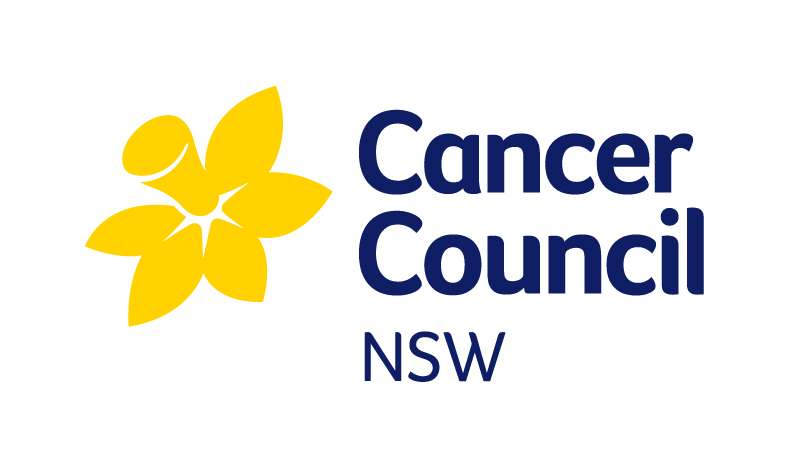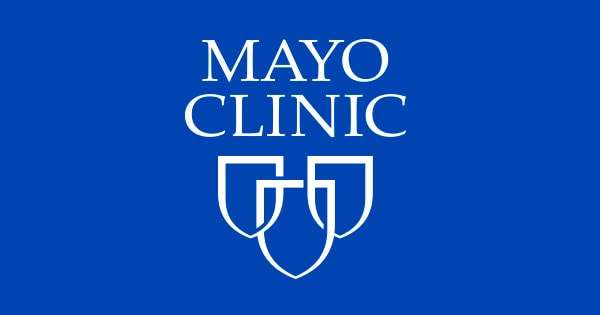How Targeted Therapies Are Used to Treat Cancer
What is targeted therapy?
Targeted therapy is a type of cancer treatment that uses drugs designed to “target” cancer cells without affecting normal cells.
Cancer cells typically have changes in their genes that make them different from normal cells. Genes are part of a cell’s DNA that tell the cell to do certain things. When a cell has certain gene changes, it doesn’t behave like a normal cell. For example, gene changes in cancer cells might allow the cell to grow and divide very quickly. These types of changes are what make it a cancer cell.
But there are many different types of cancer, and not all cancer cells are the same. For example, colon cancer and breast cancer cells have different gene changes that help them grow and/or spread. Even among different people with the same general type of cancer (such as colon cancer), the cancer cells can have different gene changes, making one person’s specific type of colon cancer different from another person’s.
Researchers have also learned that the environment in which different cancers start, grow, and thrive are not always the same. For example, some cancers have certain types of proteins or enzymes send certain messages to tell the cancer cell to grow and copy itself.
Knowing these details has led to the development of drugs that can “target” these proteins or enzymes and block the messages being sent. Targeted drugs can block or turn off signals that make cancer cells grow, or can signal the cancer cells to destroy themselves.
Targeted therapy is an important type of cancer treatment, and researchers will develop more targeted drugs as they learn more about specific changes in cancer cells. But so far, only a few type of cancers are routinely treated using only these drugs. Most people getting targeted therapy also need surgery, chemotherapy, radiation therapy, or hormone therapy.
How is targeted therapy different from chemotherapy?
Targeted therapy drugs, like other drugs used to treat cancer, are technically considered chemotherapy. But targeted therapy drugs don’t work the same way as traditional or standard chemotherapy (chemo) drugs. Targeted drugs zero in on some of the changes that make cancer cells different from normal cells. This makes them work differently from chemotherapy in two key ways:
- Because of their targeted action, these drugs have an effect on the cancer cells and mostly leave normal, healthy cells alone. Traditional chemotherapy is cytotoxic to most cells, meaning it can damage normal, healthy cells in addition to damaging and killing cancer cells.
- Targeted drugs often work by blocking cancer cells from copying themselves. This means they can help stop a cancer cell from dividing and making new cancer cells. Traditional chemotherapy, however, kills cancer cells that have already been made.
How targeted therapy works
Targeted therapies are made to find and attack specific areas or substances in cancer cells, or can detect and block certain kinds of messages sent inside a cancer cell that tell it to grow. Some of the substances in cancer cells that become the “targets” of targeted therapies are:
- Too much of a certain protein on a cancer cell
- A protein on a cancer cell that is not on normal cells
- A protein that is mutated (changed) in some way on a cancer cell
- Gene (DNA) changes that aren’t in a normal cell.
The action of targeted drugs can work to:
- Block or turn off chemical signals that tell the cancer cell to grow and divide
- Change proteins within the cancer cells so the cells die
- Stop making new blood vessels to feed the cancer cells
- Trigger your immune system to kill the cancer cells
- Carry toxins to the cancer cells to kill them, but not normal cells
The action of the drugs can affect where these drugs work and what side effects they cause.
It’s important to note that some targeted therapy drugs, for example, monoclonal antibodies, work in more than one way to control cancer cells and may also be considered immunotherapy because they boost the immune system.
Targeted therapy as precision medicine
Targeted therapy is sometimes called precision medicine or personalized medicine. This is because they are made to exactly target specific changes or substances in cancer cells, and these targets can be different even when people have the same type of cancer. Certain types of tumors are tested for different targets after a biopsy or surgery, and this can help find the most effective treatment. Finding a specific target makes matching patients with treatment more precise or personalized.
Some targeted drugs are more “targeted” than others. Targeted therapies are classified as either small or large molecule drugs.
- Small molecule drugs are tiny enough to enter a cancer cell once they find it. They work by targeting a specific substance inside the cell and blocking it.
- Large molecule drugs usually can’t fit into a cell. They work by attacking then weakening or destroying proteins or enzymes on the surface of the cell. They are often described as a “lock and key” because the molecule is like a key that opens the enzyme or protein on the surface of the cell like a lock. The key fits into the lock, allowing the drug to work.
Types of targeted therapy
Many kinds of cancer can be treated with targeted therapies, and there are many different types of targeted therapies. Here are some types with a few examples of how they are used.
- Angiogenesis inhibitors: These block the formation of new blood vessels that feed and nourish the cancer cells. Example: bevacizumab (many different cancers).
- Monoclonal antibodies: These might deliver molecules by themselves or molecules with drugs into or onto the cancer cell to kill it. Examples: alemtuzumab (certain chronic leukemias), trastuzumab (certain breast cancers), cetuximab (certain colorectal, lung, head and neck cancers). NOTE: Some monoclonal antibodies are referred to as targeted therapy because they have a specific target on a cancer cell that they aim to find, attach to, and attack. But other monoclonal antibodies act like immunotherapy because they make the immune system respond better to allow the body to find and attack cancer cells more effectively.
- Proteasome inhibitors: These disrupt normal cell functions so the cancer cells die. Example: bortezomib (multiple myeloma)
- Signal transduction inhibitors: These disrupt cell signals so that they change the actions of the cancer cell. Example: imatinib (certain chronic leukemias)
For some types of cancer, such as chronic myelogenous leukemia (also known as CML), most people with that cancer will have a target for a certain drug, so they can be treated with that drug. But most of the time, your tumor will need to be tested to see if it contains targets for which there is a drug.
Testing your cancer for targets that could help choose your treatment is called biomarker testing. See Biomarker Testing for Cancer Treatment for more information.
You may need to have a biopsy for biomarker testing. A biopsy is a procedure in which your doctor removes a piece of the tumor for testing. There are some risks to having a biopsy. These risks vary depending on the size of the tumor and where it is located. Your doctor will explain the risks of having a biopsy for your type of tumor.
Look up your type of cancer on the list of targeted therapy drugs approved to treat specific cancers to learn more about drugs that may be an option for you.
Targeted therapy is a type of cancer treatment. It uses drugs to target specific genes and proteins that help cancer cells survive and grow. Targeted therapy can affect the tissue environment that cancer cells grow in or it can target cells related to cancer growth, like blood vessel cells.
Targeted therapy can treat many different types of cancer. It can also be used in combination with other cancer treatments, such as chemotherapy. Currently, not all cancers have targeted therapies available, but this is a rapidly growing area of research and many new targeted therapies are being studied in clinical trials.
This article will help you understand the basics of how targeted therapy works to treat cancer.
How does targeted therapy work to treat cancer?
There are many types of cells that make up the different parts of the body. For example, there are blood cells, brain cells, and skin cells. Each type has its own job. Cancer starts when certain genes in healthy cells change and become abnormal over time. This change is called a genetic mutation or alteration.
Genes tell cells how to make proteins to keep the cell working. If the genes mutate, these proteins change, too. This can make cells divide too much or too quickly. When this happens, the cells live much longer than they normally would. These cells grow out of control and form a tumor. Learn more about the genetics of cancer.
To develop targeted therapies, researchers work to identify the specific genetic changes that help a tumor grow and change. This is called the drug’s “target.” An ideal target for this kind of therapy would be a protein that is present in cancer cells but not healthy cells. Once researchers have identified a target, they develop a drug treatment that attacks it.
Targeted therapies can do different things to the cancer cells they target:
-
Block or turn off signals that tell cancer cells to grow and divide
-
Prevent the cells from living longer than normal
-
Destroy cancer cells
In order to find the right targeted therapy, your doctor may order tests to learn about the genes, proteins, and other factors that are unique to the cancer you have. This helps find the most effective treatment.
Like other treatments, targeted therapies can cause side effects, so it is important that your doctor matches your tumor to the best possible treatment and dose. The recommended dose of targeted therapy is based on many factors, like body weight and your risk of developing severe side effects. Talk to your health care team about why they recommend a certain dose.
What are the different types of targeted therapy?
There are several different types of targeted therapy. The most common types are monoclonal antibodies and small-molecule drugs.
Monoclonal antibodies. Drugs called monoclonal antibodies block a specific target on the outside of cancer cells. The target might also be in the area around the cancer cells. Monoclonal antibodies can also send toxic substances right to cancer cells. For example, they can help chemotherapy and radiation therapy reach cancer cells better. Some monoclonal antibodies are also considered a type of immunotherapy, while others are not.
Small-molecule drugs. Drugs called small-molecule drugs can block the process that helps cancer cells multiply and spread. Angiogenesis inhibitors are an example of this type of targeted therapy. Angiogenesis is the process for making new blood vessels. Tumors need blood vessels to bring it nutrients. Angiogenesis inhibitors starve the tumor by keeping new blood vessels from forming in the tissue around it.
Other types of targeted therapy include other immunotherapies and apoptosis inducers (therapies that start cell death, or apoptosis).
What is tumor-agnostic treatment?
Some types of targeted therapies are specific to a type of cancer. Others are known as “tumor-agnostic” or “site-agnostic” treatments. These therapies treat specific genetic changes, no matter where the cancer started in the body. Learn more about tumor-agnostic treatments.
Examples of targeted therapies for cancer treatment
Targeted therapies are a rapidly growing field of cancer research and researchers are studying many new targets and drugs through clinical trials. Below are a few examples of targeted therapies that are available now. Ask your health care team for more information.
-
Breast cancer. About 20% to 25% of breast cancers have too much of a protein called human epidermal growth factor receptor 2 (HER2). This protein makes tumor cells grow. If the cancer is HER2-positive, there are many targeted therapy options. Learn more about targeted therapy for breast cancer.
-
Chronic myeloid leukemia (CML). Almost all cases of chronic myeloid leukemia are driven by the formation of a gene called BCR-ABL. This gene leads to the production of an enzyme called the BCR-ABL protein. This protein causes normal myeloid cells to start behaving like cancer cells. Learn more about targeted therapy for chronic myeloid leukemia.
-
Colorectal cancer. Colorectal cancer often makes too much of a protein called epidermal growth factor receptor (EGFR). Drugs that block EGFR may help stop or slow cancer growth. Other options include a drug that blocks vascular endothelial growth factor (VEGF), tumor-agnostic treatment focusing on an NTRK fusion, and anti-angiogenesis therapy. This protein helps make new blood vessels. Learn more about targeted therapy for colorectal cancer.
-
Lung cancer. Targeted therapy for lung cancer is rapidly changing due to the pace of scientific research. New targeted therapies are being studied in clinical trials now and there are many targeted therapies approved to treat non-small cell lung cancer (NSCLC). These include:
-
EGFR inhibitors
-
Drugs targeting the EGFR exon 20 insertion
-
ALK inhibitors
-
Drugs targeting the ROS1 fusion
-
Drugs targeting KRAS G12C mutations
-
Drugs targeting NTRK fusion
-
Drugs targeting BRAF V600E mutations
-
Drugs targeting MET exon 14 skipping
-
Drugs targeting RET fusion
Learn more about targeted therapy for NSCLC.
-
-
Lymphoma. In lymphoma, there is an overproduction of B cells, a type of white blood cell that fights infections. Targeted drugs that block the enzyme that leads to this overproduction of B cells have been very successful for the treatment of lymphomas and some B-cell leukemias. Learn more about targeted therapies for lymphoma.
-
Melanoma. About half of melanomas have a mutation in the BRAF gene. BRAF mutations make good drug targets, so there are many approved BRAF inhibitors. Another kind of targeted therapy called an MEK inhibitor is also approved to treat melanoma. These two targeted therapies can be combined for tumors with a BRAF mutation. Learn more about targeted therapy for melanoma.
The list of examples above does not include every targeted therapy. You can learn more about targeted therapy in each cancer-specific section on Cancer.Net in the “Types of Treatment” and “Latest Research” pages. You can also learn more about the latest targeted therapy research on the Cancer.Net blog.
Are there limitations to targeted therapy?
As with any cancer treatment, targeted therapy may not be the best treatment for every person with cancer. It may seem simple to use a drug for your specific cancer, but targeted therapy is complex, and it may not be the right drug for you. It is important to know that:
-
A targeted treatment will not work if the tumor does not have the specific genetic change or protein the drug targets
-
Even if you have the specific genetic change or protein the drug targets, it’s possible the tumor will not respond to the drug
-
The response to the treatment may not last over time
For example, the target may not be as important for the cancer’s growth as previously thought, so the drug does not provide much benefit. Or cells may become resistant to targeted therapy, so the drug may work at first but then stop working over time. If this happens, the doctor will talk with you about other treatment options.
Like many cancer treatments, targeted therapy drugs can cause serious side effects. These are usually not the same as chemotherapy side effects, because these two categories of drugs work differently. For example, people who get targeted therapy are more likely to have skin, hair, nail, or eye problems. It is always important to talk to your doctor about each drug prescribed for you, including the specific side effects to watch for and how they can be managed.
Targeted therapy is an important way to treat some cancers, but researchers are still learning more all the time about this newer approach to cancer treatment.
Targeted therapy is often used in addition to other treatments, like surgery, radiation therapy, and/or another type of medication such as chemotherapy, hormone therapy, or immunotherapy.
Questions to ask the health care team
Talk with your health care team about whether targeted therapy is a recommended part of your treatment plan. If so, consider asking these questions:
-
What type of targeted therapy do you recommend? Why?
-
What are the goals of this treatment?
-
Will targeted therapy be my only treatment? If not, what other treatments will be a part of my cancer treatment plan?
-
What clinical trials about targeted therapy are available for me?
-
How will this treatment be given to me? Where?
-
How often will I need this treatment? For how long?
-
What are the possible short-term side effects of this targeted therapy? How will these be managed?
-
Who should I talk with about any side effects I experience? How soon?
-
How will this treatment affect my daily life? Will I be able to work, exercise, and perform my usual activities?
-
What are the possible long-term side effects of this targeted therapy?
-
Whom should I call with questions or problems?
-
How can I reach them during regular office hours? After hours?
-
If I’m very worried or anxious about having this treatment, what can I talk with?
-
If I’m worried about managing the cost of this treatment, who can help me?
-
How will we know if the targeted therapy is working?
-
Will I need any tests or scans before, during, or after this targeted therapy?
Related Resources
What is Personalized Cancer Medicine?
Tumor Marker Tests
Introduction to Cancer Research
Understanding Pharmacogenomics
More Information
National Cancer Institute: Targeted Cancer Therapies
My Cancer Genome: Overview of Targeted Therapies for Cancer




